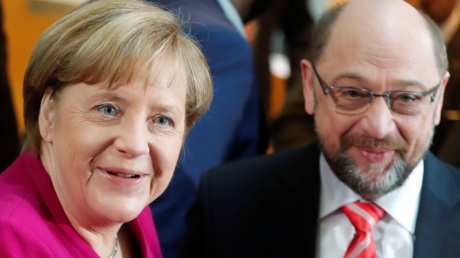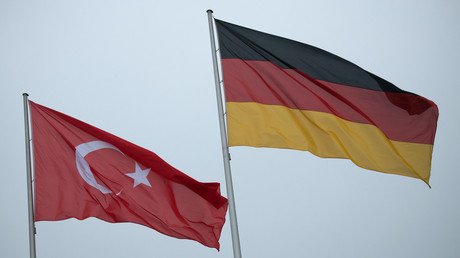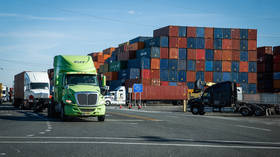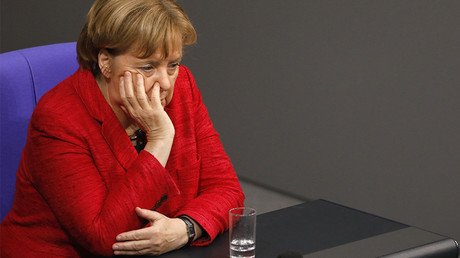German far-right AfD surpasses Social Democrats to become 2nd strongest party – poll
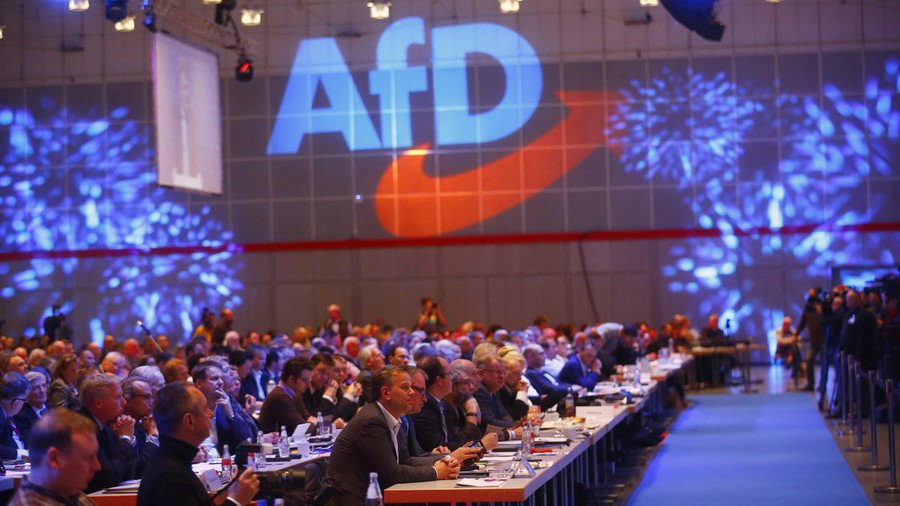
The populist far-right Alternative for Germany (AfD) party has garnered record high support, latest polling shows. For the first time, the anti-immigrant party has become more popular than the Social Democrats (SPD).
Nationwide public support for AfD, which is known for its controversially harsh anti-Islam and anti-immigrant stances, has once again risen to a record 16 percent, a survey conducted by the INSA polling center for the German Bild daily newspaper shows. Their popularity is now comparable to the record support they once had in September 2016.
At the same time, the Social Democratic Party (SPD) is on a downward trend, as the public support for what once was one of the two major “people’s parties” in Germany seems to be waning. In what was called its worst post-war performance, the SPD received just 20.5 percent of the vote in the recent parliamentary elections in September 2017. Now, according to INSA, public support for the party has fallen to yet another all-time low of only 15.5 percent.
The AfD, however, improved its election result by more than three percentage points. Back in September, the far-right party gained 12.6 percent of the vote, allowing it to enter the German parliament for the first time in history.
German Chancellor Angela Merkel’s Christian Democratic Union (CDU) and its Bavarian sister party, the Christian Social Union (CSU), are still the strongest political forces in Germany, and they enjoy a clear lead in terms of public backing. The CDU/CSU alliance is still twice as popular as its closest rivals and has the backing of 32 percent of the German population. It is still one percentage point lower than its election result, though.
Notably, the poll figures allege that if the parliamentary elections in Germany had been held last Sunday, the CDU/CSU alliance would be unable to form a majority coalition with the Social Democrats – something that the two political forces are still desperately trying to accomplish almost five months after the elections. According to the poll, the CDU/CSU union and the SPD would only get 47.5 percent of the vote.
In the meantime, the AfD, which capitalized on the refugee crisis by repeatedly criticizing Merkel for her ‘open door’ policy, seems close to becoming the second most popular political party in Germany. The party, however, is still mired in controversy.
Most recently, Andre Poggenburg, state leader of the AfD in Saxony-Anhalt, provoked a wave of criticism by calling Turks living in Germany “camel drivers” who should “go back to where they belong.” His remarks were then lambasted by German politicians, ordinary citizens and even his own fellow party members.
The German Greens have 13 percent of public support. Meanwhile, the Left Party and the Free Democrats (FDP) both sustained small losses of around one percentage point and received 11 and nine percent of public support, respectively.
Think your friends would be interested? Share this story!
